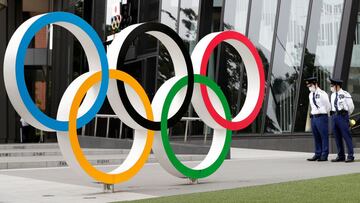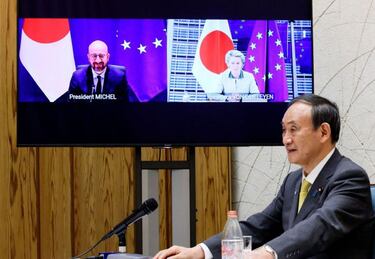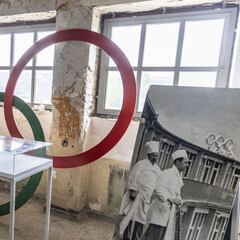Health experts' concerns grow amid calls for Tokyo 2021 Olympics to be cancelled
Outside Japan, several medical experts have harshly criticized the IOC’s preparations, while the Tokyo Medical Practitioners Association has called for the all-out cancellation.

Are the Olympics in danger of being cancelled again?
Last March, the 2020 Tokyo Olympics Games were postponed due to the coronavirus pandemic. Following that bitter disappointment for the athletes and everyone involved, excitement and anticipation has been building once again ahead of the rescheduled Games set to get underway on 23 July, with the organizers announcing this week that they had entered “operational delivery mode”.
But with less than two months to go until the opening ceremony and as Japan struggles to deal with a resurgence of coronavirus cases, many inside the country are now calling for the games to be cancelled again.
TPMA calls for cancellation of Tokyo 2021
A large number of polls have found that the majority of the Japanese public are opposed to the event going ahead. Meanwhile, leading Japanese newspaper Asahi Shimbun, one of the event's official sponsors, called for the cancellation of the Games in an editorial this Wednesday.
“We ask Prime Minister (Yoshihide) Suga to calmly and objectively assess the situation and decide on the cancellation of the event this summer,” said the paper. “We are far from a situation in which everybody can be confident they will be safe and secure. Sadly, that is not the reality.”
Concerns are also being voiced by a growing number of health experts, both domestically and abroad, with the Tokyo Medical Practitioners Association urging that the Games be cancelled. In an open letter to Prime Minister Suga, the TPMA, which represents about 6,000 primary care doctors, said hospitals in the Japanese capital "have their hands full and have almost no spare capacity" amid a new spike in infections.
"We strongly request that the authorities convince the IOC (International Olympic Committee) that holding the Olympics is difficult and obtain its decision to cancel the Games," it said.

Health experts slam IOC's Olympic preperations
Outside Japan, several medical experts have harshly criticized the IOC’s preparations but have so far refrained from calling for the all-out cancellation of Tokyo 2021. In an article published in the New England Journal of Medicine this week, a group of US researchers has called on the World Health Organization to "immediately convene an emergency committee" to advise on a risk-management approach for the Tokyo Olympics, warning that the current plans for the Games are "not informed by the best scientific evidence.”
“All along the way there’s been an ignorance of science,” Dr. Annie Sparrow, a global health specialist and lead author of the article, said of the IOC’s preparations in an interview (via the New York Times). “It’s not rocket science to hold a safe Olympics. It’s basic medical science. But that’s what the IOC has ignored, and I don’t know if they’re going to start paying attention now.”
See also:
- Do Olympians get paid? How much do they get for winning medals?
- Olympic medallist Kumar arrested over fellow wrestler's death
- "Salah presence will make Tokyo Olympics a bigger event"
Related stories
When asked if he believed the games should be cancelled, another of the article’s authors, Michael Osterholm of the University of Minnesota's Center for Infectious Disease Research and Policy told CNN: “I'd give them a chance right now. I think that we all want the good news of the Olympics.”
"I think no one at this point wouldn't want to have that torch lit and to see us come back together, but I think that the approach they're taking right now is virtually a dangerous one if they don't change many of the recommendations they have and for how they're going to protect athletes and their support team members," Osterholm added. "I think this is a real challenge."
